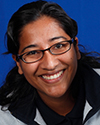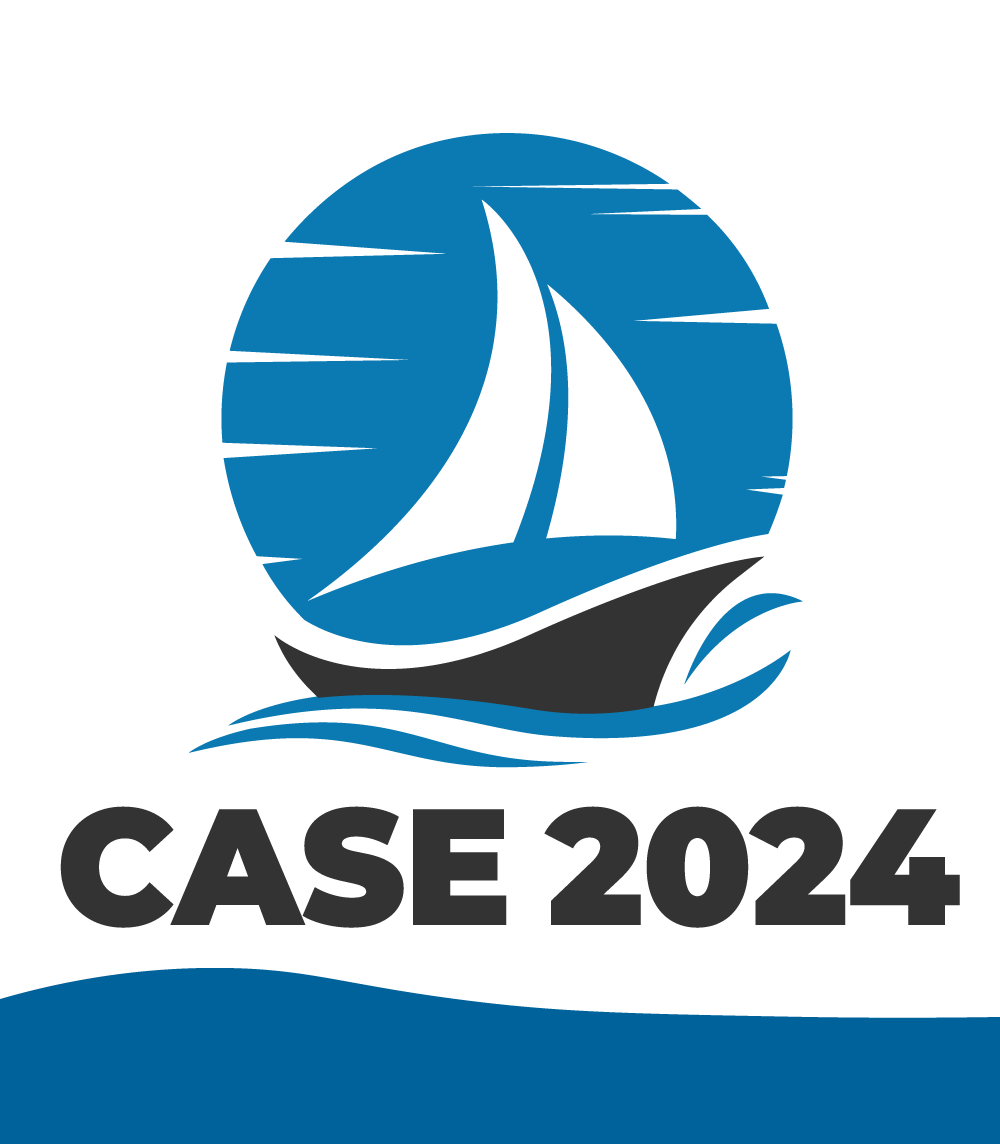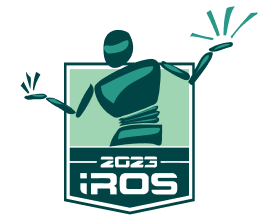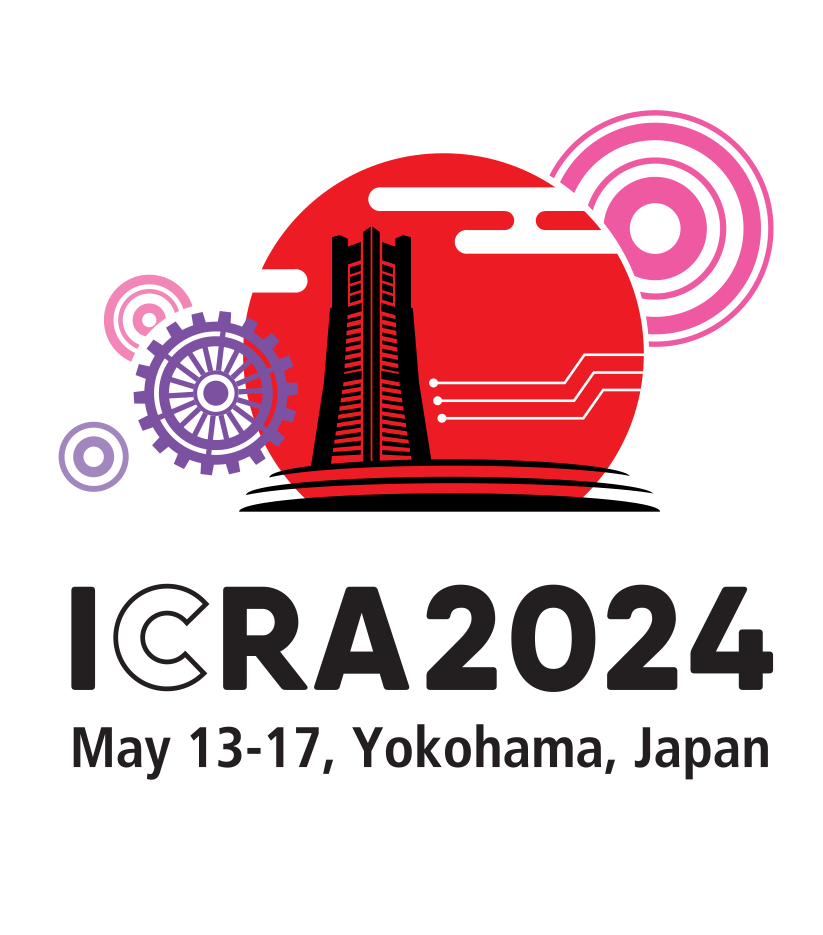Latest News
The IEEE Robotics and Automation Society membership will elect six new members of the Administrative Committee in 2022, each to serve a three-year term beginning 1 January 2023. The AdCom is the governing body of the Society.

RESPONSIBILITIES OF ADCOM MEMBERS
AdCom members must attend two formal meetings each year, one in conjunction with ICRA and the other usually in October/November in conjunction with another major conference. Each AdCom member is expected to serve on at least two boards and/or committees of the Society.
ELIGIBILITY
Any higher-grade member of the Society is eligible to serve and all higher-grade members plus graduate students may nominate candidates and vote.
TO NOMINATE A CANDIDATE
To nominate a candidate or offer yourself as a candidate, contact the Society at ras@ieee.org by 1 May 2022.
PETITION CANDIDATES
Candidates may also petition to be on the ballot. All persons who, by the deadline, submit petitions with valid signatures and IEEE member numbers with at least 2% of the year-end voting membership will be placed on the ballot. Only original signatures on paper or electronic signatures submitted through the RAS petition website will be accepted. Faxed or emailed signatures are NOT acceptable. Contact the Society at ras@ieee.org to obtain a paper petition form or to set up an electronic petition.
Completed petitions must be received by 1 May 2022 to be placed on the ballot.
SELECTION OF FINAL BALLOT
The Nominations Committee will consider all nominations and petitions and select the candidates to be placed on the ballot.

IEEE recently hired Pete Sobel as the first Executive Director of the IEEE Robotics and Automation Society. Pete has more than 35 years of experience creating, supporting and growing academic, industry and professional society programs. In recent years, Pete has led initiatives at Yale, Columbia and Rutgers Universities. His efforts increased industry-academic partnerships in support of science and engineering research.
Prior to those efforts, Pete was at IEEE for nearly seven years working to establish and develop IEEE’s global offices (Europe, India, Japan and China). In that post, he also led fundraising for the IEEE Foundation, and built key corporate partnerships. Pete also established and led IEEE’s initial Humanitarian Activities Programs including partnerships with the United Nations Foundation, ASME, and Engineers Without Borders.
Pete also directed global business development for Boston’s Museum of Science, expanding their brand, diversifying revenue streams and growing the international dissemination of their K-8 engineering curriculum and intellectual property. Most recently, he served as Director, Global Affairs at Optica (formerly OSA) where he was responsible for the Global Environmental Measurement & Monitoring and Global Health Initiatives.
Pete is eager to reconnect with IEEE colleagues, forge new relationships, and dive deep into the exciting world of Robotics and Automation.
The IEEE Robotics & Automation Society recognizes and congratulates the following individuals for their outstanding accomplishments and service to RAS and the robotics and automation community. They will be honored during an award ceremony, to be held during the IEEE International Conference on Robotics & Automation (ICRA 2022) in May. Please join us in congratulating these outstanding recipients!
RAS Pioneer Award

Marc Raibert - Boston Dynamics, Waltham, (MA) United States
"For pioneering contributions to the field of dynamic legged locomotion"

"For pioneering contributions to the field of robot mechanics, mechanism design and surgical manipulation"
RAS George Saridis Leadership Award in Robotics and Automation

Torsten Kroeger - Karlsruhe Institute for Technology (KIT) Karlsruhe, Germany
"For foundational research on real-time robot motion planning and leadership and service in conferences and society management"

"For leadership in robotics and automation through innovations in conferences and publications, broadly accessible education, and research"

Jing Xiao- Worcester Polytechnic Institute, Worcester (MA), United States
"For leadership, service, dedication, and innovation in RAS and Robotics and Automation community"
IEEE RAS Distinguished Service Award

Raja Chatila - Sorbonne University, Paris, France
"For his excellent, visionary contribution to governance, journals, conferences and multidisciplinary international initiatives linking robotics to artificial intelligence and ethics"

Aude Billard – EPFL, Lausanne, Switzerland
"For her leadership in RAS publication activities and distinguished services on RAS conferences and RAS committees."

Cecilia Laschi– National University of Singapore, Singapore
"For her outstanding contribution and leadership in Technical Activities, Conferences, and Administrative Committees"
Early Academic Career Award in Robotics and Automation
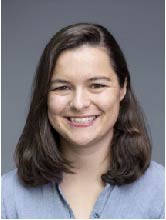
Chelsea Finn - Stanford University, Stanford (CA), USA
"For pioneering contributions in deep robotic learning, and their application to vision-based robotic manipulation."

Dorsa Sadigh- Stanford University, Stanford (CA), USA
"For contributions to learning and control algorithms for interactive robotics"
Early Government or Industry Career Award in Robotics and Automation

Joshua Mehling- NASA Johnson Space Center, Houston, (TX) USA
"For extraordinary contributions to the advancement of space robotic systems and their innovative spin-off application in industry and other government missions"
IEEE Robotics and Automation Award for Product Innovation

ANYbotics
Peter Fankhauser
"ANYmal: a versatile quadruped robot with high mobility for inspection and maintenance"
RAS Most Active Technical Committee Award
Technical Committee on Haptics
Chair: Claudio Pacchierotti, Co-Chairs: Manuel Cruz, Ki-Uk Kyung
Technical Committee on Model-Based Optimization for Robotics
Co-Chairs: Sylvain Calinon, Adrien Escande, Yue Hu, Patrick M. Wensing
RAS Chapter of the Year Award
IEEE Robotics and Automation Society, Kerala Chapter
Chair: Dr. Jisha V R, Co-Chair: Robin Tommy
RAS Student Chapter of the Year Award
RAS Student Branch Chapter Rajiv Gandhi Institute of Technology
Chair: Abdul Ahad, Co-Chair: Ajisha V
RAS Student Branch Chapter Universidad Nacional de Colombia Sede Bogotá
Chair: Valentina Hernández
The IEEE Robotics and Automation Society (RAS) is interested in encouraging students to play an active role in existing robotics standardization efforts. To help encourage student participation, funds have been set aside to provide partial travel support to students interested in attending the IEEE International Conference on Robotics and Automation (ICRA) in Philadelphia, PA on May 23-27, where numerous IEEE robotics standardization meetings will be held. We expect to award 3 - 4 travel grants for $1,000 each. While this will likely only support a fraction of the students’ travel expenses, it is hoped that this will make it a little easier for students to attend. Priority will be given to students that would not have otherwise attended ICRA (e.g., do not have a paper accepted), and priority will also be given to undergraduate students. You do not need to be an IEEE member to apply.
Travel awards will cover conference and/or workshop registration and partial reimbursement for lodging and travel. Reimbursements will be processed after attendance at ICRA 2022. Funding will be contingent on ICRA 2022 occurring physically (not virtually only). Selected students will be expected to participate in the full-day International Robotics Standards Coordination Effort meeting likely to be held the day before ICRA (22 May), as well as participate in at least one standards working group meeting. Students will also be required to write a 2 - 3 page report, submitted to IEEE RAS, describing their experiences at the conference and how they expect to use what they learned.
Any questions can be directed to Dr. Craig Schlenoff (Associate Vice President of Standardization in the IEEE Robotics and Automation Society Industrial Activities Board) at craig.schlenoff@nist.gov.
Applications are due 1 March 2022 with notification of acceptance expected on or around 15 March 2022.
Important Links:
- To apply for the travel grant: https://app.smartsheet.com/b/
form/ 1cdaa60cf0484d29a31da3ae3b5010 63 - IEEE RAS Standardization Efforts: https://www.ieee-ras.org/
industry-government/standards - ICRA 2022 Website: https://www.icra2022.org/
Special Issue on Small-Scale Robots in the Medical Context, From Modeling and Fabrication to Clinical Applications
Motivation
Small scale robotics is an emerging robotic field, promising novel revolutionary solutions in the healthcare (e.g., targeted therapeutic delivery, and minimally invasive interventions). For these miniature (millimeter to nanometer scale) robots to be successful, a huge progress has been made during the past decade which includes advancements in the fabrication of microrobots, and small-scale soft robots, as well as diverse actuation techniques and control strategies. All these efforts made robotics at small scale a thriving community within the wider robotics society. With many proofs of concept made reality over the past decade, now the community is moving toward in-vivo/preclinical and clinical applications of these robots and is attracting clinicians as well as medical robotics companies.
This special issue invites novel innovative papers in IEEE RAL format, that focus on the recent developments in the fabrication, sensing, actuation, and control of milli/micro/nanorobots in the medical context. More specifically, the special issue includes but not limited to the robotics and automation aspects of these miniaturized robots for the targeted drug delivery, diagnosis, hyperthermia, and minimally invasive surgery. We invite research works encompassing the in silico, in vitro, in vivo, pre-clinical, clinical studies of the medical milli/micro/nanorobot.
List of topics
Topics of interest for this special issue include and are not limited to:
· Soft Miniature Robots
· Swarm of micro/nanorobots
· Mechatronics Systems for Small Scale Robotics
· Sensing and monitoring at small scale
· Actuation of miniature robots
· Autonomous robotics at small scale
· Medical imaging for real-time control
Timeline
The special issue will follow the following timeline:
| 15 January 2022 | Call for Papers |
| 1 September 2022 | Papercept open for submission |
| 30 September 2022 | Submission deadline |
| 26 December 2022 | Authors receive RA-L reviews and recommendation |
| 10 January 2023 | Authors of accepted MS submit final RA-L version |
| 26 January 2023 | Authors of R&R MS resubmit revised MS |
| 1 March 2023 | Authors receive final RA-L decision |
| 15 March 2023 | Authors submit final RA-L files |
| 20 March 2023 | Camera ready version appears in RA-L on Xplore |
| 30 March 2023 | Final Publication |
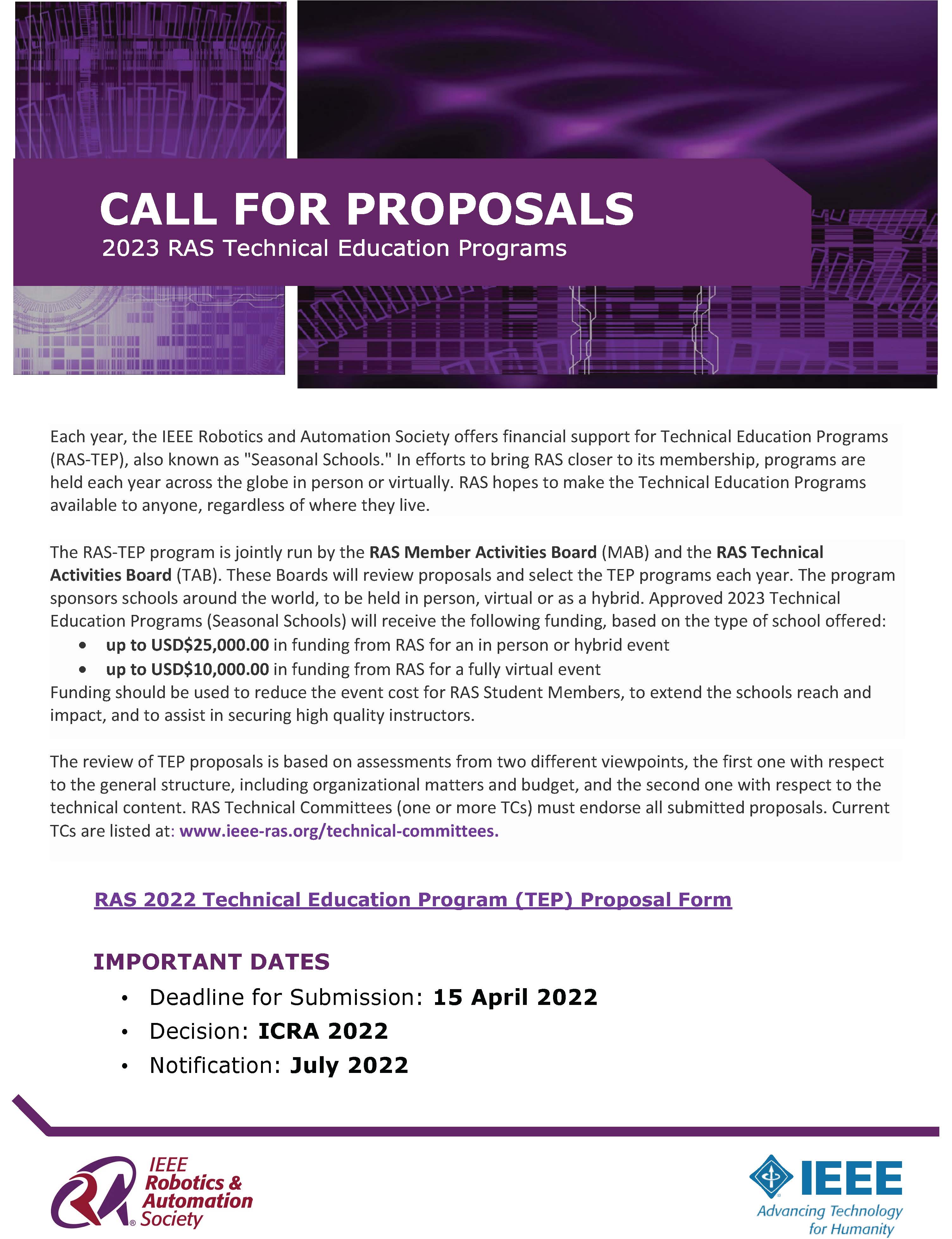
Each year, the IEEE Robotics and Automation Society offers financial support for Technical Education Programs (RAS-TEP), also known as "Seasonal Schools." In efforts to bring RAS closer to its membership, programs are held each year across the globe in person or virtually. RAS hopes to make the Technical Education Programs available to anyone, regardless of where they live.
The RAS-TEP program is jointly run by the RAS Member Activities Board (MAB) and the RAS Technical Activities Board (TAB). These Boards will review proposals and select the TEP programs each year. The program sponsors schools around the world, to be held in person, virtual or as a hybrid. Approved 2023 Technical Education Programs (Seasonal Schools) will receive the following funding, based on the type of school offered:
- up to USD$25,000.00 in funding from RAS for an in person or hybrid event
- up to USD$10,000.00 in funding from RAS for a fully virtual event
Funding should be used to reduce the event cost for RAS Student Members, to extend the schools reach and impact, and to assist in securing high quality instructors.
The review of TEP proposals is based on assessments from two different viewpoints, the first one with respect to the general structure, including organizational matters and budget, and the second one with respect to the technical content. RAS Technical Committees (one or more TCs) must endorse all submitted proposals. Current TCs are listed at: www.ieee-ras.org/technical-committees.
RAS 2022 Technical Education Program (TEP) Proposal Form
IMPORTANT DATES
- Deadline for Submission: 15 April 2022
- Decision: ICRA 2022
- Notification: July 2022
Written by: Raja Chatila, Antonio Bicchi, Wolfram Burgard, Alessandro De Luca and Yoshihiko Nakamura
The robotics community mourns Jean-Paul Laumond, a pioneer of non-holonomic motion planning and humanoid robotics.
Figure 1.: Jean-Paul Laumond at Workshop on the Algorithmic Foundations of Robotics (WAFR): Guanajuato, Mexico, 2008
The robotics community mourns Jean-Paul Laumond, a pioneer of non-holonomic motion planning and humanoid robotics.
- “Jean-Paul, tell me why do we have so much trouble to compute Hilare’s trajectories and maneuvers?” asked Georges Giralt one morning, late 1985. Hilare was an experimental robot developed at LAAS-CNRS in Toulouse, France, with two motor-driven wheels and a front free wheel.
- “Er… well… because it has wheels!” says Jean-Paul.
And he got to work to develop the theory of non-holonomic motion planning. This opened new avenues and immense possibilities in robotics.
It is a difficult exercise to write this column about a colleague and a friend. Jean-Paul Laumond has passed away after a sudden heart attack on 20 December 2021. Born in Donzenac, France in 1953, he was a high-school Mathematics professor when he decided to undertake a Ph.D. with Georges Giralt at LAAS-CNRS in Toulouse, France in 1980. After defending his thesis, he joined the French National Center of Scientific Research (CNRS) in 1985 and spent most of his career at LAAS. He moved to the Department of Computer Science (DIENS) of the Ecole Normale Supérieure in Paris in 2019, within the Inria team WiIlow.
From non-holonomic motion planning and control, to humanoid robotics, to modeling human motion, Jean-Paul was able to develop complex theories and put them to work in the real world. This includes the development of initial and pioneering solutions to the SLAM problem for the robot Hilare in the early eighties and founding the company Kineo CAM, which is now part of Siemens.
He was awarded the RAS IEEE Inaba Technical Award for Innovation Leading to Production in 2016. He was elevated Fellow of the IEEE in 2007 for his “contributions to robot motion planning and control”. He served two terms as a member of the RAS Adcom (2007-2012) and was Editor of the IEEE Transactions on Robotics (2008-2012).
Jean-Paul was also a leader. He was director of the Joint Japanese-French laboratory on humanoid robotics from 2005 until 2008. He founded the Gepetto team at LAAS to focus on anthropomorphic motion and was awarded a prestigious European Research Council Advanced Grant to study the computational foundations of anthropomorphic action.
Jean-Paul Laumond has been the first roboticist to hold the Liliane-Bettencourt Chair in Technological Innovation at the prestigious Collège de France from 2011 to 2012, a true ambassador of our field. In 2015 he was elected to the French Academy of Technology and then to the Academy of Sciences in 2017.
Many in our robotics family at large share memories about the fascinating scientific and human personality of Jean-Paul. He was a curious researcher who loved the challenges and discussing science at all levels. Ready to listen and exchange inspiring ideas with colleagues, and generous in giving advice and sharing his visions and enthusiasm with students. A kind and warm person with a charming smile and dry humor, though strong and passionate when arguing about culture, politics, or food (not to mention Poincaré and Hephaestus) - and always available to serve our community and discipline.
Jean-Paul was concerned about the perception of technology, and how the language used to describe robots skewed the understanding of their capacities in the general public. He was always at the center of enthusiastic multicultural discussions among the robotics researchers with his love to art, music, science, and mathematics, which also made him a leader and spokesman of robotics as both a science and a metaphysical reflection. In November 2021, just a few weeks before his passing away, he co-organized a multidisciplinary colloquium at the Academy of Sciences: “Myths and Machines. Robotics and Artificial Intelligence: thinking about technology today”. He left us too soon with this legacy.
Figure 2.: Jean-Paul Laumond in front of ten-foot-tall bronze Pinocchio statue - 2009 IROS in St. Louis (MO), USA
IEEE Transactions on Medical Robotics and Bionics (IEEE-TMRB) Special Issue / Section on Sensors for Physical Interaction and Perception in Minimally Invasive Robotic Surgery
Interaction Sensors for Minimally Invasive Robotic Surgery
This special issue/section aims at presenting contributions on sensors for monitoring and rendering physical interaction to increase perception in surgical robotics, such as, for example, force/torque, contact, proximity, virtual sensors and their corresponding feedback devices. Robotic surgery is a research field in continuous evolution and many aspects are still to be optimised to develop more complex clinical operations. Ten years ago, artificial intelligence was not considered for surgical systems; Da Vinci was the only surgical robot available on the market; 3D printing was a promising technology potentially useful for robotic surgery; and microsurgery was developed to increase precision. Today, the European Commission has defined the ethical guidelines of artificial intelligence in all sectors of technology, including surgical robotics; many surgical robots are being developed or tested in the market and 3D printing is a viable tool for medicine. However, one big problem that still remains unsolved is the sensorization of surgical tools: designs still rely on classical configurations, fabrication is very challenging, and sterilization of electronics prevents embedding sensors in the instruments. Furthermore, data collected by sensors are fed back to the users by simple devices that can rarely support a good perception, thus sensors and feedback devices should be optimized for joint operation, which is not presently done. This special issue/section will contribute to clarify the field, help defining the promising technologies and their applications, and list the progress in using interaction data to simplify surgery tasks. Interaction among sensors and new haptic devices for increasing perception in surgeons are others interesting aspects included in the topics of the special issue/section.
Topics include, but not limited to:
- Force/Torque Sensors for Surgical Robotic Instruments;
- Force Feedback, Estimation and Measurement;
- Optical Fibre Sensors;
- Tactile and proximity Sensors;
- Vision and Virtual Sensors;
- Design of Micro-Electro-Mechanical-Systems (MEMS) Load Cell for Surgery;
- Strain Gauges and Fibre Bragg Grating (FBG);
- Multi-Axis Force Platforms and Stewart Platform;
- Suture Tensile and Tool-Tissue Interaction;
- Smart Instruments and Tissue Palpation;
- Flexure Hinge and Force Decoupling.
- Modelling, Control and Design of Micro Force/Torque Sensors;
- Machine Learning and AI for Sensory data Analysis and Validation;
- Disposable Sensors and Sterilization;
- Design of Haptic Devices with Force and touch rendering for Telesurgery;
- Interaction Among Sensors for Perception in Robotic Surgery.
Manuscripts must be submitted on-line, through the IEEE submission procedure, available at: https://mc.manuscriptcentral.com/tmrb-ieee.
Authors should follow the regular procedure to submit a paper to T-MRB and they must clearly specify in the cover letter that the submission is intended for possible inclusion in the Special Section entitled “Interaction Sensors for Minimally Invasive Robotic Surgery”.
Guest Editors: Prof. Paolo Fiorini, University of Verona, Italy, and Dr. Giovanni Gerardo Muscolo, University of Verona, Italy.
Deadline for papers submission: 15 July 2022
Publication date: Volume 5, Issue 1 (February 2023)
Aude Billard will serve as RAS President Elect in 2022-2023. The RAS Administrative Committee elected Billard to serve as President Elect under President, Frank Park and to assume the Society presidency in January 2024. Most recently, she has served RAS on the Administrative Committee, as Vice President of Publication Activities.
Congratulations to the six RAS members elected by the membership to serve a three-year term beginning 1 January 2022. We wish the newly elected members of the Administrative Committee success and thank all candidates for their willingness to serve and for permitting their names to be included on the ballot.
| Arash Ajoudani |
|
Insitituto Italiano di Tecnologia
Genova, Italy |
| Nancy Amato |
|
University of Illinois at Urbana-Champaign
Urbana (IL), USA |
| Fumihito Arai |
|
|
| Karinne Ramirez Amaro |
|
Chalmers University of Technology, Sweden
Gothenburg, Sweden |
| Inna Sharf |
|
McGill University
Montreal, Canada |
| Kenji Suzuki |
|
University of Tsukuba
Tokyo, Japan |
2022 RAS Fellows Evaluated by RAS
Harry Asada – Massachusetts Institute of Technology, USA
“For the design, modeling, and control of direct drive robotic arms”
Stephan Biller – Advanced Manufacturing International, Inc. (AMI), USA
"For leadership in the applications of Internet of Things and Artificial Intelligence in manufacturing industry"
Darwin Caldwell –Italian Institute of Technology, Italy
"For contributions to Actuator Technology, Legged Systems and Soft Human Friendly Robotic"
Abderrahmane Kheddar – University of Montpellier, France
"For contributions to robotic haptics and humanoids"
Katherine Kuchenbecker – University of Pennsylvania, USA
"For contributions to interactive haptic systems and robotic touch perception"
Youfu Li – University of California, USA
"For contributions to active visual sensing using structured light pattern projection"
Juan Tardos – Universidad de Zaragoza, Spain
"For contributions to simultaneous localization and mapping with visual sensors"
Pietro Valdastri – University of Leeds, UK
"For contributions to medical capsule robots"
Richard Voyles – Purdue University, USA
"For leadership in the implementation of programs that foster robotics research and the robotics community"
Peter Wurman – Sony AI, USA
"For contributions to computational auction, multiagent systems and robotics"
2022 RAS Fellows Evaluated by Other IEEE Societies
Evaluated by the IEEE Aerospace and Electronic Systems Society:
Chee-yee Chong – USA
“For contributions to information fusion methods for multi-sensor tracking”
Evaluated by the IEEE Computational Intelligence Society:
Zhijun Li – Univ. of Sci. & Tech. of China, China
“For contributions to control systems for wearable robotics and biomechatronics”
Evaluated by the IEEE Control Systems Society:
Daniel Abramovitch – Agilent Technologies, USA
“For contributions to the development of algorithms for control of mechatronic systems”
Evaluated by the IEEE Control Systems Society:
Ming Cao – Engineering and Technology institute Groningen, Netherlands
“For contributions to multi-agent control systems for sensor, robotic and social networks”
Evaluated by the IEEE Control Systems Society:
R Scott Erwin – Air Force Research Laboratory, USA
“For leadership and contributions to the development, implementation and on-orbit demonstration of spacecraft control technologies”
Evaluated by the IEEE Engineering in Medicine and Biology Society:
Silvestro Micera – Scuola Superiore Sant'Anna, Italy
“For contributions to restoration of human sensorimotor functions using engineered neuroprostheses”
Evaluated by the IEEE Industrial Electronics Society:
Xinkai Chen – Shibaura Institute of Technology, Japan
“For contributions to nonlinear adaptive control and nonlinear observer design for mechatronic systems”
Evaluated by the IEEE Oceanic Engineering Society:
Hanumant Singh – Northeastern University, USA
“For development of localization and mapping techniques and autonomous systems for marine and polar applications”
More About IEEE Fellows

IEEE Fellow is a distinction reserved for select IEEE members. The honor is conferred by the Board of Directors upon a person with an extraordinary record of accomplishments in any of the IEEE fields of interest.
If you know of an IEEE colleague who is a Senior Member or Life Senior Member in good standing, has completed five years of service in any grade of IEEE Membership and who has made an outstanding contribution to the electronic or electrical engineering profession, you can nominate this person in one of four categories:
- Application Engineer/Practitioner
- Educator
- Research Engineer/Scientist
- Technical Leader
Additional information about the IEEE Fellow program, and a list of RAS Fellows is available HERE.
Registration deadline: 10 January 2022
As the complexity of current robotic and embodied intelligent systems grows, it is more and more necessary to adhere to sound experimental approaches and benchmarking procedures. We think that it is of fundamental importance that the next generation learns good experimental, performance evaluation and benchmarking methods as part of their technical education. We will capitalize on our experience on organizing workshops on these topics and on the tradition of organizing robotics seasonal schools and virtual events. We believe that the field is now mature to try to convey all the accumulated knowledge and know-how in a one-week summer school format in order to present the relevant topics to the graduate students in a consistent and systematic way. Thanks to the R-article process in IEEE RAM, we are now able to make progress towards a widespread and much needed practice of Reproducible Research in Robotics.
This Seasonal School will provide necessary information, knowledge and motivation to support the community’s transition to an environment where reproducible research is possible and common.
Event Website
http://www.
The 1st International Winter School on Smart Materials for Soft Robots to be held at the University of Cambridge, United Kingdom from 12-18 December 2021. Registration is now OPEN to attend the virtual event (http://smartsummer.eu/). The five-day hybrid school aims to provide scientific and personal development for young researchers in the multidisciplinary fields of soft robotics and smart materials. The lectures will be from a mix of academic and industrial frontrunners which is run in a hybrid format. There are also exciting prizes to be won. The school is sponsored by the IEEE RAS Technical education program and supported by six other participating projects.
Please visit the website for more details: http://smartsummer.eu/
Congratulations to the IEEE Robotics and Automation Society members recently elevated to Senior Member status by the IEEE Admission and Advancement Senior Member Review Panel.
Congratulations to all award recipients of IEEE International Conference on Robotics and Automation (ICRA 2021)! Due to the hybrid event, we are saddened that some of these individuals could not be recognized in person. A complete RAS and ICRA Award brochure is available. It also contains IEEE and RAS Award recipients, plus all ICRA Best Paper Award Finalists.
IEEE ICRA Milestone Award
The award recognizes the most influential paper published in the Proceedings of the IEEE International Conference on Robotics and Automation (ICRA) from approximately 20 years ago, between 1999-2003. Unlike the other RAS best paper awards that attempt to predict the future potential impact of a paper, this award looks back at the actual impact a paper has had.
Biped Walking Pattern Generation by using Preview Control of Zero-Moment Point
Shuuji Kajita, Fumio Kanehiro, Kenji Kaneko, Kiyoshi Fujiwara, Kensuke Harada, Kazuhito Yokoi, and Hirohisa Hirukawa
Proceedings of the 2003 IEEE lnternational Conference on Robotics & Automation, pp. 1620-1626
2021 ICRA Best Paper Award in Automation
Automated Fabrication of the High-Fidelity Cellular Micro-Scaffold through Proportion-Corrective Control of the Photocuring Process
Xin Li, Huaping Wang, Qing Shi, JiaXin Liu, Zhanhua Xin, Xinyi Dong, Qiang Huang and Toshio Fukuda
- An essential and challenging use case solved and evaluated convincingly. This work brings to light the artisanal field that can gain a lot in terms of safety and worker’s health preservation through the use of collaborative robots. Simulation is used to design advanced control architectures, including virtual walls around the cutting-tool as well as adaptive damping that would account for the operator know-how and level of expertise.
IEEE ICRA Best Paper Award in Cognitive Robotics
How to Select and Use Tools?: Active Perception of Target Objects Using Multimodal Deep Learning
Namiko Saito, Tetsuya Ogata, Satoshi Funabashi, Hiroki Mori and Shigeki Sugano
- Robots benefit from being able to select and use appropriate tools. This paper contributes to the advancement of robotics by focusing on tool-object-action relations. The proposed deep neural network model generates motions for tool selection and use. Results demonstrated for a relatively complex ingredient handling task have broader applications in robotics. The approach that relies on active perception and multimodal information fusion is an impactful contribution to cognitive robotics.
IEEE ICRA Best Paper Award on Human-Robot Interaction (HRI)
Reactive Human-To-Robot Handovers of Arbitrary Objects
Wei Yang, Chris Paxton, Arsalan Mousavian, Yu-Wei Chao, Maya Cakmak and Dieter Fox
- This paper presents a method combining real-time motion planning and grasp selection for object handover task from a human to a robot, with effective evaluation on a user study on 26 diverse household objects. The incremental contribution has been made for human robot interaction. Be great if the cost function of best grasp selection somehow involves robotic manipulation metric, eg., form closure.
IEEE ICRA Best Paper Award on Mechanisms and Design
Soft Hybrid Aerial Vehicle Via Bistable Mechanism
Xuan Li, Jessica McWilliams, Minchen Li, Cynthia Sung and Chenfanfu Jiang
- This paper presents a novel morphing hybrid aerial vehicle with folding wings that exhibits both a quadrotor and a fixed wing mode without requiring any extra actuation by leveraging the motion of a bistable mechanism at the center of the aircraft. A topology optimization method is developed to optimize the bistable mechanism and the folding wing. This work is an important contribution to design of hybrid aerial vehicles.
IEEE ICRA Best Paper Award in Medical Robotics
Relational Graph Learning on Visual and Kinematics Embeddings for Accurate Gesture Recognition in Robotic Surgery
Yonghao Long, Jie Ying Wu, Bo Lu, Yueming Jin, Mathias Unberath, Yunhui Liu, Pheng Ann Heng and Qi Dou
- This paper presents a novel online multi-modal graph learning method to dynamically integrate complementary information in video and kinematics data from robotic systems, to achieve accurate surgical gesture recognition. The proposed method is validated on collected in-house dVRK datasets, shedding light on the general efficacy of their approach.
IEEE ICRA Best Paper Award on Multi-Robot Systems
Optimal Sequential Stochastic Deployment of Multiple Passenger Robots
Chris (Yu Hsuan) Lee, Graeme Best and Geoffrey Hollinger
- The paper presents rigorous results (well validated experimentally) and visionary ideas: the innovative idea of marsupial robots is very promising for the multi-robot systems community.
IEEE ICRA Best Paper Award in Robot Manipulation
StRETcH: A Soft to Resistive Elastic Tactile Hand
Carolyn Matl, Josephine Koe and Ruzena Bajcsy
- The committee was particularly impressed by the high level of novelty in this work with unique applications for tactile manipulation of soft objects. Both the paper and presentation provided a clear description of the problem solved, methods and contribution suitable for the general ICRA audience. Significant experimental validations made for a compelling record of the contribution.
IEEE ICRA Best Paper Award in Robotic Vision
Interval-Based Visual-LiDAR Sensor Fusion
Raphael Voges and Bernardo Wagner
- The paper proposes to use interval analysis to propagate the error from the input sources to the fused information in a straightforward way. To show the applicability of our approach, the paper uses the fused information for dead reckoning. An evaluation using real data shows that the proposed approach localizes the robot in a guaranteed way.
IEEE ICRA Best Paper Award in Service Robotics
Compact Flat Fabric Pneumatic Artificial Muscle (ffPAM) for Soft Wearable Robotic Devices
Woojong Kim, Hyunkyu Park and Jung Kim
- This paper presents design and evaluation of a novel flat fabric pneumatic artificial muscle with embedded sensing. Experimental results clearly demonstrate that the innovative ffPAM is durable, compact, and has great potential to advance broader application of wearable service robots.
IEEE ICRA Best Paper Award on Unmanned Aerial Vehicles
Aerial Manipulator Pushing a Movable Structure Using a DOB-Based Robust Controller
Dongjae Lee, Hoseong Seo, Inkyu Jang,Seung Jae Lee and H. Jin Kim
- This paper provides a robust control approach that maintains UAV stability through manipulator contact forces during pushing. It contributes control design along with convincing experimental validation on manipulated objects of unknown size and dynamics. The approach provides practical utility for unmanned aerial manipulation with contact forces.
IEEE ICRA Best Student Paper Award
Unsupervised Learning of Lidar Features for Use in a Probabilistic Trajectory Estimator
David Juny Yoon, Haowei Zhang, Mona Gridseth, Hugues Thomas and Timothy Barfoot
- The paper presents an unsupervised parameter learning approach in the context of Gaussian variational inference. The approach is innovative and sound. It has been well evaluated using open benchmark datasets. The paper has a broad impact on autonomous navigation.
IEEE ICRA Best Conference Paper Award
Extrinsic Contact Sensing with Relative-Motion Tracking from Distributed Tactile Measurements
Daolin Ma, Siyuan Dong and Alberto Rodriguez
- The paper makes a notable contribution to the important and re-emerging field of tactile perception by solving the problem of contact localization between an unknown object held by an imprecise grasp and the unknown environment with which it is in contact. This paper represents an excellent theory-to-practice exercise as the novel proposal of using extrinsic tactile array data to infer contact is verified with a new tactile sensor and real robotic manipulation in a simplified, but realistic environment. The authors also provide a robust and honest discussion of results, both positive and negative, for reader evaluation.
ICRA 2022 Conference Editorial Board Awards
Creating a world class technical program for ICRA requires the contributions of many. With the following awards, IEEE RAS recognizes individuals who provided outstanding contributions to the ICRA Conference Editorial Board, which is responsible for reviewing submissions to ICRA.
Best Associate Editor Award
- Patrick Wensing - University of Notre Dame, USA
- Raffaella Carloni - University of Groningen, the Netherlands
- Shengyong Chen - Tianjin University of Technology, China
- Luca Carlone - Massachusetts Institute of Technology, USA
Best Reviewer Award
- Mathias Lechner - Institute of Science and Technology Austria, Austria
- Hadas Kress-Gazit - Cornell University, USA
- Zhang Yinlong - University of Texas at San Antonio, USA
- Justin Yim - University of California, Berkeley, USA
Call for papers for RA-L Special Issue on Variable Impedance Control And Learning In Complex Interaction Scenarios: Challenges And Opportunities
Motivation
Advancements in robotics research are allowing robots to move from traditional caged environments on factory floors into human environments, which are highly unstructured, dynamic, and uncertain. Such a move requires robots to autonomously interact with their environment and physically cooperate with people, which significantly increases the demand for reliable perception, planning and control. However, there are still several fundamental research problems that must addressed to ensure the success of robots in human-inhabited environment, for example: how to design physical interaction control systems that can work with potentially uncertain environment models and uncertain sensory feedback; how to deal with unpredictable and complex physical interactions with human beings; and how to adapt the robot dynamic behavior in real-time.
This special issue aims at collecting different points of view about learning and impedance control. In principle, the combination of these two tools can afford robots the ability to enhance their manipulation and locomotion skills in unstructured environments, as well as their capacity to handle perturbations and uncertainty during physical interaction. Enabling robots to acquire knowledge autonomously and use it to interact with the world around them more intelligently will lead to future developments in this area, enforcing safety and reliability while building upon the principles of AI.
List of topics
Topics of interest for this special issue include and are not limited to:
- Variable impedance control (VIC).
- Low-level control of variable impedance.
- Human impedance.
- Physical human-robot cooperation.
- Physical interaction control.
- VIC from geometry awareness and manifold learning perspective.
- Variable and optimal impedance strategies for manipulation and locomotion.
Timeline
The special issue will follow the following timeline:
|
1 October 2021 |
Call for Papers |
|
1 February 2022 |
Papercept open for submission |
|
24 February 2022 |
Submission deadline |
|
21 May 2022 |
Authors receive RA-L reviews and recommendation |
|
4 June 2022 |
Authors of accepted MS submit final RA-L version |
|
20 June 2022 |
Authors of R&R MS resubmit revised MS |
|
25 July 2022 |
Authors receive final RA-L decision |
|
8 Aug 2022 |
Authors submit final RA-L files |
|
13 Aug 2022 |
Camera ready version appears in RA-L on Xplore |
|
23 Aug 2022 |
Final Publication |
For more information- https://www.ieee-ras.org/publications/ra-l/special-issues/cfp-variable-impedance-control-and-learning-in-complex-interaction-scenarios-challenges-and-opportunities
After a successful pilot, RAS in 2021 launched an expanded Developing Country Faculty Engagement Program. The goal of the program is to help faculty in developing countries compete successfully in publishing their research at top RAS conferences and journals by connecting them with assigned RAS mentors.
Priority for acceptance to the program was given to faculty members from a university or college located in an IEEE identified developing country. Applicants were also required to be RAS members with research experience in robotics and automation.
Each developing country faculty member (the mentee) will be supported for up to two years to work with a mentor. RAS will fund the collaboration according to an approved proposal and budget submitted by the mentee and mentor.
Some of the responsibilities of the mentee include:
- Write co-authored RAS conference/journal papers (with mentor) based on research
- Write a paper as a lead author towards the end of the mentorship period
- Become involved in the mentor’s research activities, including group meetings and seminars
- Create or expand a local RAS student chapter
- Visit mentor’s lab (if possible) and regularly join mentor’s lab meetings
- Attend an RAS conference to present a paper
- Establish collaboration with researchers during an RAS conference
- Yearly joint report by the mentor and mentee regarding their accomplishments
2021 Awardees
|
MENTEE |
MENTOR |
PROJECT |
|
Moctar Mossi Idrissa Abdou Moumouni University of Niamey, Niger |
Volkan Isler University of Minnesota, USA |
Crops/Weeds Classification from Aerial Imagery |
|
Koena Mukherjee National Institute of Technology, Silchar, India |
Nancy Amato and Marco Morales University of Illinois Urbana-Champaign, USA |
Task and Motion Planning for search and rescue operation with a particular focus on sampling-based methods |
|
Issarapong Khuankrue King Mongkut’s University of Technology Thonburi, Thailand |
Subramanian Ramamoorthy University of Edinburgh, UK |
Teaching the Robot by Guidance: Developing the human-robot collaboration with a cognitive architecture model |
|
Syed Tanweer Shah Bukhari University of South Asia, Pakistan |
Emily Hand and David Feil-Seifer University of Nevada, Reno, USA |
Control Framework for Human Robot Interaction using Cognitive Robots |
|
Hassan Jaleel Lahore University of Management Sciences, Pakistan |
Jeff S. Shamma University of Illinois Urbana-Champaign, USA |
Distributed Multi-robot Coordination Under Adversarial Environments |
|
Francisco Cuellar Pontifical Catholic University of Peru, Peru |
Marcelo H Ang Jr National University of Singapore, Singapore |
Autonomous robots in underground mining: the implementation and validation of mobile robots to identify risks of falling objects in underground mining |
The following RAS Volunteers were instrumental in creating and implementing this program.
- Jyh-Ming Lien, George Mason University - USA
- Tony Maciejewski, Colorado State University - USA
- Ron Lumia - Texas, USA
Congratulations to the IEEE Robotics and Automation Society members recently elevated to Senior Member status by the IEEE Admission and Advancement Senior Member Review Panel.
Congratulations and welcome to the following newly organized RAS Chapters:
SECTION CHAPTERS
Region 5 - 7
USA
- IEEE Lone Star Section, Robotics and Automation Society Chapter
- IEEE Boise Section Signal Processing and Robotics and Automation Joint Societies Chapter
- IEEE Metropolitan Los Angeles Section Robotics and Automation Society Chapter
Canada
- IEEE Kitchener-Waterloo Section Robotics and Automation Society Chapter
Region 9
Guatemala
- IEEE Guatemala Section, Robotics and Automation Society Chapter
Mexico
- IEEE Guadalajara Section Robotics and Automation Society Chapter
Region 10
China
- IEEE Beijing Section, Systems, Man, and Cybernetics and Robotics and Automation Joint Societies Chapter
India
- IEEE Hyderabad Section, Robotics and Automation Society Chapter
Philippines
- IEEE Republic of Philippines Section Robotics and Automation Society Chapter
STUDENT BRANCH CHAPTERS
Region 5
USA
- University of Texas-San Antonio Robotics and Automation Society Student Branch Chapter
Region 8
Egypt
- Menoufia University Robotics and Automation Society Student Branch Chapter
- Pharos University in Alexandria Robotics and Automation Society Student Branch Chapter
Greece
- Democritus University of Thrace Robotics and Automation Society Student Branch Chapter
Jordan
- Tafila Technical University, Robotics and Automation Society Student Branch Chapter
Kenya
- University of Nairobi, Robotics and Automation Society Student Branch Chapter
Palestine
- An-Najah National University Robotics and Automation Society Student Branch Chapter
Romania
- Politehnica University of Bucharest, Robotics and Automation Society Student Branch Chapter
Tunisia
- Faculty of Science of Tunis, Robotics and Automation Society Student Branch Chapter
- Higher Institute of Applied Sciences and Technology (ISSATM), Robotics and Automation Society Student Branch Chapter
- Higher School of Sciences and Technologies Hammam Sousse, Robotics and Automation Society Student Branch Chapter
- Institute of Technological Studies of Bizerte, Robotics and Automation Society Student Branch Chapter
- National Higher Engineering School of Tunis (ENSIT), Robotics and Automation Society Student Branch Chapter
- Polytechnique Sfax, Robotics and Automation Society Student Branch Chapter
Turkey
- Istanbul Sabahattin Zaim Universitesi, Robotics and Automation Society Student Branch Chapter
- Istanbul Technical University, Robotics and Automation Society Student Branch Chapter
Region 9
Brazil
- Universidad Estadual Paulista, Robotics and Automation Society Student Branch Chapter
- Universidad Federal do Espirito Santo-Sao Mateus, Robotics and Automation Society Student Branch Chapter
Colombia
- Universidad Sergio Arboleda, Engineering in Medicine and Biology and Robotics and Automation Joint Societies Student Branch Chapter
El Salvador
- Universidad de Sonsonate, Robotics and Automation Society Student Branch Chapter
Mexico
- Instituto Tecnologico De Hermosillo, Robotics and Automation Society Student Branch Chapter.
- Universidad Autonoma del Estado de Mexico, Robotics and Automation Society Student Branch Chapter
Peru
- Universidad Nacional de Trujillo, Robotics and Automation Society Student Branch Chapter
Region 10
Australia
- University of New South Wales, Robotics and Automation and Engineering in Medicine and Biology Societies Student Branch Chapter
Bangladesh
- Bangladesh University of Business and Technology, Robotics and Automation Society Student Branch Chapter
- BRAC University, Robotics and Automation Society Student Branch Chapter
- International Islamic University Chittagong, Robotics and Automation Society Student Branch Chapter
- University of Liberal Arts-Bangladesh, Robotics and Automation Society Student Branch Chapter
India
Bangalore Section
- GSSS Institute of Engineering and Technology for Women, Robotics and Automation Society Student Branch Chapter
- Manipal Institute of Technology, Robotics and Automation Society Student Branch Chapter
- National Institute of Technology-Karnataka, Robotics and Automation Society Student Branch Chapter
- Rashtreeya Vidyalaya College of Engineering, Robotics and Automation Society Student Branch Chapter
- Sri Jayachamarajendra College of Engineering, Robotics and Automation Society Student Branch Chapter
- Vidya Vardhaka College of Engineering, Robotics and Automation Society Student Branch Chapter
- Vidya Vikas Institute of Engineering and Technology, Robotics and Automation
Bombay Section
- Shri Sant Gajanan Maharaj College of Engineering, Robotics and Automation Society Student Branch Chapter
Delhi Section
- YMCA University of Science and Technology – Faridabad, Robotics and Automation Society Student Branch Chapter
Gujarat Section
- G H Patel College of Engineering and Technology, Robotics and Automation Society Student Branch Chapter
- University of Rajshahi, Robotics and Automation Society Student Branch Chapter
Hyderabad Section
- Nawab Shah Alam Khan College of Engineering and Technology, Robotics and Automation Society Student Branch Chapter
- Sreyas Institute of Engineering and Technology, Robotics and Automation Society Student Branch Chapter
- Vardhaman College of Engineering-Shamshabad Robotics and Automation Society Student Branch Chapter
Kerala Section
- Ahalia School of Engineering and Technology, Robotics and Automation Society Student Branch Chapter
- College of Engineering-Perumon, Robotics and Automation Society Student Branch Chapter
- Mar Athanasius College of Engineering Robotics and Automation Society Student Branch Chapter
- Muthoot Institute of Technology and Science Robotics and Automation Society Student Branch Chapter
- Rajagiri School of Engineering and Technology, Robotics and Automation Society Student Branch Chapter
- St Joseph's College of Engineering and Technology-Palai, Robotics and Automation Society Student Branch Chapter
- Toc H Institute of Science and Technology (TIST), Robotics and Automation Society Student Branch Chapter
Madras Section
- Sri Sai Ram Engineering College, Robotics and Automation Society Student Branch Chapter
Uttar Pradesh Section
- Bipin Tripathi Kumaon Institute of Technology, Robotics and Automation Society Student Branch Chapter
- Dewan VS Group of Institutes, Robotics and Automation Society Student Branch Chapter
- JSS Academy of Technical Education - Noida
- Pranveer Singh Institute of Technology, Robotics and Automation Society Student Branch Chapter
- Vidya Vikas Institute of Engineering and Technology, Robotics and Automation Society Student Branch Chapter (Bangalore Section)
Pakistan
- Sir Syed Center for Advanced Studies in Engineering Institute of Technology, Robotics and Automation Society Student Branch Chapter
Sri Lanka
- University of Jaffna, Robotics and Automation Society Student Branch Chapter
- Uva Wellassa University, Robotics and Automation Society Student Branch Chapter
Heartfelt congratulations to Pieter Abbeel, selected recipient of the prestigious 2022 IEEE Kiyo Tomiyasu Award "for contributions to deep learning for robotics." He will receive this award during the 2022 IEEE International Conference on Robotics and Automation (ICRA) in Philadelphia, (PA) USA on 23-27 May 2022.

Striving to build ever-more intelligent systems, Pieter Abbeel is paving the way to the next generation of robots that can learn and improve to function outside of traditional manufacturing settings. Abbeel helped start the field of robot learning by cleverly combining learning and optimal control for hard tasks including helicopter flight, manipulating cloth, and surgical knot-tying. He then applied deep learning to robotics by incorporating aspects of reinforcement learning, imitation learning, and unsupervised learning to enable AI-powered robots that have the potential to sense and react to their environment and meaningfully reason through the consequences of their actions in real time. These robots are now playing a role in warehouse order fulfillment, logistics, and supply-chain applications critical to e-commerce.
An IEEE Fellow, Abbeel is a professor and director of the Berkeley Robot Learning Lab at the University of California Berkeley, Berkeley, CA, USA.
More About the IEEE Kiyo Tomiyasu Award
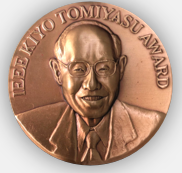
The IEEE Kiyo Tomiyasu Award was established in 2001 by the IEEE Board of Directors, and is presented for outstanding early to mid-career contributions to technologies holding the promise of innovative applications. The award consists of a bronze medal, certificate, and cash honorarium. In the evaluation process, the following criteria are considered: innovation or development, social value, uniqueness of concept, other technical accomplishments, and the quality of the nomination.
Past Recipients can be found HERE





